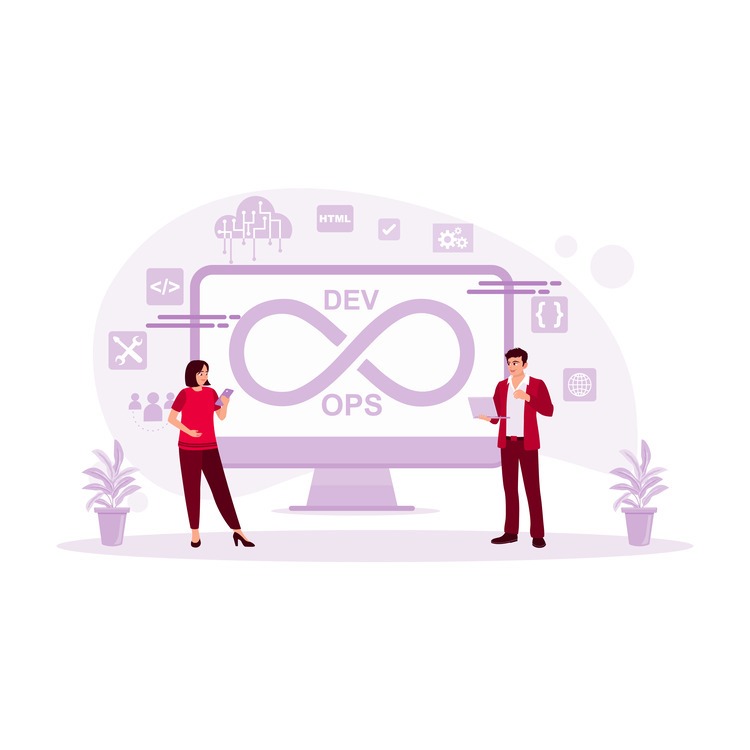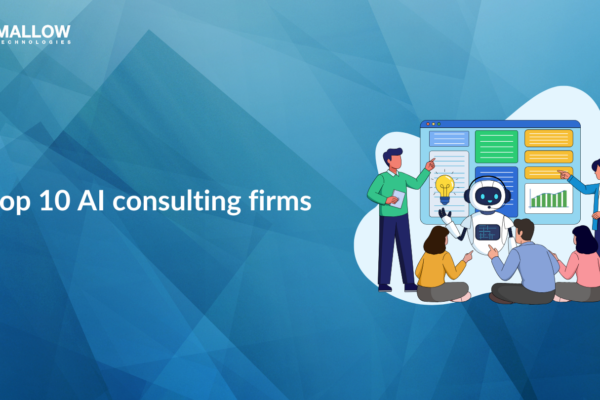Are you considering outsourcing DevOps consulting services? Choosing the right partner is important for using resources effectively and achieving strong returns. Understanding both the benefits and limitations of outsourcing can help you decide whether it is the right approach for your business.
At Mallow, we bring more than five years of experience as a DevOps consulting partner, working with clients across multiple industries. Through these collaborations, we have gained practical insights into what outsourcing does well and where challenges can arise. We believe in transparency and aim to present a balanced view that helps you evaluate your options with confidence.
In this article, we explore the key advantages and disadvantages of outsourcing DevOps consulting services. By the end, you will have the clarity needed to decide whether this approach aligns with your business goals and long term strategy.
What are DevOps consulting services?
DevOps consulting services provide expert guidance to help businesses adopt DevOps practices effectively. These services support organizations in automating workflows, optimizing CI/CD pipelines, and managing cloud infrastructure more efficiently.
DevOps consultants also help improve collaboration between development and operations teams. The overall goal is to simplify software delivery, boost productivity, and lower operational costs by using the right tools, processes, and best practices.
What are the pros of outsourcing DevOps consulting services?
Access to a global talent pool
Access to global talent is essential for businesses looking to expand their capabilities and drive innovation in a competitive market. DevOps consulting enables organizations to tap into a worldwide pool of skilled professionals with diverse expertise.
These consultants bring strong knowledge across key DevOps practices such as continuous integration, continuous delivery, infrastructure automation, and cloud computing. Their experience helps improve operational efficiency and supports faster innovation.
By leveraging global talent, businesses can access specialized skills that match specific project needs. For example, if your project requires deep expertise in platforms like AWS or Azure, outsourcing allows you to work with consultants who have proven experience in those environments.
Working with professionals from different regions and backgrounds also introduces fresh perspectives. This diversity encourages creative thinking and effective problem solving, resulting in stronger DevOps solutions and better overall outcomes.
Cost-effectiveness

Outsourcing DevOps tasks can lead to meaningful cost savings when compared to managing an in house team. By working with external DevOps providers, businesses can avoid expenses related to hiring, training, salaries, employee benefits, and infrastructure maintenance.
According to a report by 1840 and Company, outsourcing DevOps helps reduce costs by limiting the need for full time staff and lowering ongoing operational overhead. This approach improves efficiency and allows businesses to use their resources more strategically, leading to stronger returns on investment.
Outsourcing also offers greater budget flexibility. You pay only for the services you need, making it easier to scale resources up or down based on project demands. This flexibility helps optimize costs while maintaining the right level of DevOps support.
Reduce the risk of project failure or delays
Experienced DevOps consulting firms help businesses identify and reduce risks during software development and deployment. These experts understand common DevOps challenges such as security vulnerabilities, system integration issues, and scalability limitations.
Strong project management plays a key role in risk reduction. Organizations with effective project management practices report a 35% higher success rate in meeting project goals, highlighting the value of structured oversight and clear processes.
By working with experienced professionals, businesses can benefit from proven best practices and practical insights. These consultants take a proactive approach to addressing potential issues, helping prevent delays and project failures.
This method strengthens risk management, improves delivery reliability, and supports long term stability across business operations.
Access to an outsourcing partner means you can scale up and down your team to match your needs
Outsourcing offers enhanced scalability and flexibility, allowing businesses to adjust resources based on changing project demands. Organizations can easily scale DevOps support up or down without the challenges of hiring, training, or downsizing an internal team.
This flexibility ensures efficient use of resources and enables faster responses to evolving business needs. For example, during peak development phases, companies can quickly increase DevOps support to meet tight deadlines. During slower periods, they can scale back to control costs and avoid unnecessary spending.
This scalability and flexibility enable businesses to respond more effectively to market demands and project fluctuations, ensuring optimal resource utilization. For example, during peak development periods, organizations can quickly ramp up DevOps resources to meet project deadlines, and scale down during quieter periods to minimize costs.
Your team can focus on core functions
Outsourcing non core activities such as DevOps allows internal teams to focus on what matters most to the business. By delegating DevOps responsibilities to external experts, organizations can concentrate on strategic initiatives that drive growth and competitive advantage.
This focus improves productivity, encourages innovation, and strengthens overall business performance. For instance, instead of managing infrastructure and deployment processes internally, teams can dedicate more time to product development, customer experience, or marketing efforts that directly support business goals.
Access to advanced tooling and technologies

Outsourcing DevOps functions gives businesses access to modern tools and technologies such as Kubernetes for container orchestration, Terraform for infrastructure as code, and Jenkins for continuous integration and deployment. These tools are essential for building scalable, reliable, and efficient systems.
Working with external DevOps experts allows you to benefit from their hands on experience with these technologies. They can help you implement advanced solutions that improve development workflows, streamline deployments, and optimize operations. This approach boosts productivity while also encouraging innovation within your organization.
Using modern DevOps tools can significantly improve efficiency and competitiveness. For example, automated testing tools help improve software quality, while containerization speeds up deployments. Together, these practices reduce time to market and improve customer satisfaction.
Implement all the best practices and standards
DevOps consulting firms bring strong experience in applying industry best practices and standards. Their expertise covers areas such as continuous integration, continuous delivery, infrastructure as code, and automated testing.
Following established best practices helps ensure your systems remain reliable, scalable, and secure. For instance, CI and CD pipelines enable faster and more dependable software releases. Infrastructure as code supports automated provisioning and configuration, reducing manual errors and improving consistency across environments.
By adopting these standards, businesses can build resilient systems that support long term growth and operational excellence.
Quickly adopt DevOps culture and practices
Providing specialized DevOps training to an internal team can be time consuming and expensive, especially when the training must be tailored to specific project needs. Outsourcing DevOps functions to external experts offers a faster and more cost effective alternative.
By working with experienced DevOps specialists, organizations can quickly adopt practices that align with current project requirements. This approach improves collaboration, strengthens communication, and increases automation across development and operations teams. It also supports a smoother transition toward a DevOps driven culture. Forrester predicts major shifts in how developers write and adopt code in 2024, reinforcing the importance of agile methods and DevOps practices for faster delivery and continuous improvement.
Rapid adoption of DevOps principles leads to better collaboration, quicker time to market, and higher software quality. Practices such as iterative development and continuous feedback allow teams to respond faster to changing requirements and deliver value to customers more efficiently.
Cloud migration with expert guidance

Many organizations are moving to the cloud to benefit from scalability, flexibility, and cost efficiency. IDC reports continued growth in cloud adoption, along with rising demand for DevSecOps and platform engineering. This trend highlights the importance of expert guidance during cloud migration.
Partnering with external specialists provides access to focused expertise in cloud transitions. These professionals can assess your existing infrastructure, define a clear migration strategy, and implement cloud native solutions using platforms such as AWS, Azure, or Google Cloud.
With expert support, businesses can achieve better performance, stronger security, and improved cost control. This makes the transition to the cloud smoother and more successful than relying solely on in house capabilities.
capabilities.
What are the cons of outsourcing DevOps consulting services?
Lack of direct control
Outsourcing DevOps functions may result in reduced direct control over project management and execution. This can lead to potential misalignment with your organizational objectives, causing delays, quality issues, or deviations from the intended project scope.
The best ways to mitigate the lack of direct control
-
- Implement project management tools like Jira or Trello to track tasks, timelines, and responsibilities.
-
- Adopt IT governance frameworks such as COBIT or ITIL to ensure alignment with organizational objectives and compliance requirements.
-
- Utilize DevOps monitoring and analytics tools like Prometheus, Grafana, or Splunk to track project milestones and performance metrics in real time.
-
- Implement Continuous Integration/Continuous Deployment (CI/CD) pipelines with tools like Jenkins or GitLab CI to automate and streamline the development and deployment processes, facilitating regular progress updates.
-
- Employ code review and collaboration tools like GitHub or Bitbucket to maintain code quality and ensure adherence to best practices.
-
- Conduct security audits using tools like SonarQube or OWASP ZAP to identify and address potential vulnerabilities and compliance issues.
Timezone challenges
Timezone challenges can arise when outsourcing DevOps functions due to the differences in working hours between your in-house teams and the external consultants. This discrepancy can lead to communication delays, hinder real-time collaboration, and potentially result in errors or incomplete deliverables due to the limited overlap in working hours.
Effective strategies to mitigate Timezone challenges:
-
- Clearly define communication expectations, response times, and availability windows to ensure both parties are aligned and informed.
-
- Employ platforms like Slack, Microsoft Teams, or Discord to facilitate immediate interaction, enabling quick resolution of queries and issues despite time differences.
-
- Leverage collaboration tools with asynchronous communication features, such as Asana, Trello, or Jira. These platforms allow team members to work on tasks at their own pace and contribute to projects regardless of time zone disparities.
-
- Platforms like Google Workspace or Microsoft Office 365 enable collaborative editing of documents, promoting seamless teamwork irrespective of geographic locations and time zones.
-
- Arrange specific hours where both your team and the external consultants are available, promoting real-time collaboration and reducing the impact of time zone differences.
Quality concerns
The quality concerns challenge arises due to the absence of direct oversight when outsourcing DevOps functions. This lack of direct control and supervision can lead to uncertainties regarding the quality of work delivered by the outsourcing team. As a result, there is a heightened risk of receiving subpar deliverables, which can cause project delays, compromise the project’s integrity, and potentially lead to project failures.
Strategies to mitigate quality concerns:
-
- Set clear quality criteria and standards at the start of the engagement. This helps define expectations early and provides measurable benchmarks for success.
- Establish strong quality assurance processes that include proven practices. Regular code reviews using tools like Gerrit or GitHub help maintain consistency and improve overall code quality. Automated testing frameworks such as JUnit, PyTest, or Mocha can be used to validate functionality and ensure reliability throughout development.
- Performance testing is also essential. Tools like Apache JMeter or LoadRunner allow teams to evaluate application behavior under different loads and optimize performance before issues impact users. In addition, conducting regular audits and inspections helps verify adherence to quality standards, identify potential risks early, and maintain alignment with industry best practices.
- DevOps tools can further strengthen quality assurance efforts. Automation platforms such as Jenkins, Travis CI, or CircleCI streamline build and testing workflows, enabling continuous integration and faster feedback. Code quality tools like SonarQube and ESLint help detect bugs, security vulnerabilities, and maintainability issues early in the development cycle.
- For broader validation, tools like Selenium or Cypress can be used for web application testing, while Postman supports thorough API testing. Together, these practices ensure consistent quality, improved reliability, and stronger overall system performance.
Strategically addressing quality assurance concerns through these methodologies and utilizing suitable testing tools can greatly improve the outcomes of outsourcing DevOps consulting projects. For additional guidance on navigating quality testing methodologies, explore this article on what quality testing methods should you consider for your application.
Creating a dependency on external providers
Relying heavily on external providers for critical functions like DevOps can create dependency issues within your organization. Any disruptions or failures on the part of the outsourcing partner can have significant repercussions on your project timelines and deliverables.
Strategies to mitigate dependency on external providers:
-
- Reduce dependency by engaging with multiple vendors to spread risk and avoid complete reliance on a single provider.
-
- Establish alternative strategies to address potential disruptions in service delivery, ensuring continuity and resilience in operations.
-
- Promote active collaboration between your in-house teams and outsourcing partners to facilitate smoother transitions, improve communication, and minimize the impact of any disruptions.
-
- Utilize automation tools such as Jenkins, Ansible, or Terraform to streamline processes, reduce manual intervention, and increase efficiency, thereby reducing dependency on external providers for certain tasks.
-
- Combine both in-house and outsource DevOps capabilities to achieve a balanced and flexible operational model, allowing you to maintain control over critical functions while leveraging external expertise when needed.
Potential security risks

Sharing sensitive data and access with external parties during the outsourcing process can introduce security risks, including data breaches, unauthorized access, or intellectual property theft.
Strategies to Mitigate Potential Security Risks:
-
- Utilize robust encryption techniques to protect data both at rest and in transit.
-
- Implement strict access controls to ensure that only authorized personnel can access sensitive information.
-
- Apply data anonymization techniques to mask personally identifiable information (PII) and other sensitive data, reducing the risk associated with data exposure.
-
- Before engaging with outsourcing partners, perform comprehensive security assessments to evaluate their security posture and practices.
-
- Ensure that potential partners comply with relevant regulatory requirements and industry standards, such as ISO 27001 or SOC 2, to guarantee a baseline level of security.
-
- Draft clear and detailed contracts that outline security responsibilities, expectations, and protocols for handling confidential information.
-
- Include clauses that specify the consequences of security breaches and the steps to be taken in the event of a breach.
-
- Implement continuous monitoring tools and conduct regular security audits to identify and address potential vulnerabilities or breaches proactively.
-
- Utilize intrusion detection systems (IDS) and intrusion prevention systems (IPS) to monitor network traffic and detect suspicious activities in real-time.
-
- Educate both your employees and outsourced teams about cybersecurity best practices, protocols, and the importance of maintaining a strong security posture.
-
- Regularly update training programs to reflect the latest security threats and mitigation strategies, ensuring that all team members are equipped to respond effectively to evolving cybersecurity challenges.
When should you and when shouldn’t you consider outsourcing DevOps consulting services?
Here’s a table summarizing when to consider and when to reconsider working with an outsourcing DevOps consulting team:
| Consider outsourcing if | Reconsider outsourcing if |
| Cost efficiency is crucial | Immediate and direct control is essential |
| Flexibility and scalability are needed | The project involves highly confidential information |
| Access to a diverse talent pool is desired | Long-term relationship building is a priority |
Remember, the decision depends on your specific business needs, project requirements, and the level of control and involvement you seek.
What are the essential considerations before outsourcing DevOps consulting services?
By now, you have a clear understanding of the advantages and limitations of outsourcing DevOps consulting services. This knowledge helps you make informed decisions and prepares you to address potential challenges with the right mitigation strategies. As a result, the hiring process becomes simpler and more structured.
Before moving forward with outsourcing, it is important to understand the key factors that influence a successful partnership. These considerations help you choose the right provider and establish a strong foundation for collaboration.
Being aware of these factors allows you to optimize your budget, maintain transparency, clearly define the scope of work, and set realistic expectations. Most importantly, it ensures that the outsourcing engagement aligns closely with your business goals and long term objectives. Do check out this article on 7 key factors to consider while outsourcing DevOps consulting services to gain deeper insights. This comprehensive guide serves as an invaluable resource, providing insights into the vital aspects to consider before making your outsourcing decision.
Still, trying to figure out how to proceed further with outsourcing DevOps consulting services? Feel free to reach out to our team.
Your queries, our answers
DevOps is a methodology that integrates development and operations teams to enhance collaboration and efficiency throughout the software development lifecycle. By promoting practices like continuous integration and continuous delivery (CI/CD), DevOps accelerates release times and improves software quality.
You should consider implementing DevOps when your projects are experiencing increasing complexity, frequent releases, quality and stability issues, or when there's a need for better cross-functional collaboration. DevOps is also ideal when you face scalability challenges or need to respond quickly to market demands.
For more details, get in touch with our team.
Security is a critical aspect of Mallow’s DevOps consulting services. We integrate security measures throughout the DevOps pipeline, using practices like automated security testing, continuous monitoring, and compliance checks. This ensures that your software remains secure without compromising speed or quality.
Automation is central to DevOps, enabling faster and more reliable software deployments. It involves automating repetitive tasks like code testing, integration, and deployment, which reduces errors, enhances efficiency, and allows your team to focus on innovation.
Key DevOps tools include version control systems, CI/CD pipelines, containerization platforms, and monitoring tools like Git, Jenkins, Docker, and Prometheus. Mallow provides comprehensive training and support to ensure your team is proficient in using these tools effectively.
A key practice of DevOps is Continuous Integration and Continuous Delivery (CI/CD). CI/CD involves the frequent integration of code changes into a shared repository and automating the deployment process. This practice helps in detecting issues early, improving software quality, and speeding up release cycles. By automating the testing and deployment phases, CI/CD ensures that software updates are delivered quickly and reliably.
Mallow offers ongoing support after the initial implementation of DevOps practices. This includes monitoring, troubleshooting, and continuous optimization to ensure your DevOps environment remains efficient, secure, and aligned with your business goals.
DevOps consulting services help streamline your software development processes, reduce time-to-market, and increase software reliability. By adopting DevOps practices, your organization can improve cross-functional collaboration, automate workflows, and enhance overall operational efficiency.
To learn how these practices can specifically benefit your application development, check out our insights on the value DevOps companies bring to the process.
Mallow’s DevOps consulting process involves assessing your current practices, identifying areas for improvement, and guiding your team through the adoption of DevOps methodologies. We offer tailored solutions, continuous support, and training to ensure successful DevOps implementation and long-term benefits.Check out how our DevOps consulting services can streamline your software development processes and improve efficiency
Yes, DevOps can be highly beneficial for small and medium-sized businesses. It helps streamline processes, improve software quality, and reduce time-to-market, giving smaller organizations a competitive edge. Mallow tailors its DevOps consulting services to meet the specific needs of businesses of all sizes.
Mallow stands out for its expertise, collaborative approach, and commitment to continuous improvement. With over 5 years of dedicated experience in DevOps, our team provides customized solutions that drive efficiency, innovation, and reliability in your software development processes.
To know more, get in touch with our experts.
Yes, Mallow provides migration services to help transition your existing projects to a DevOps environment. We assess your current setup, plan the migration strategy, and ensure a smooth transition with minimal disruption to your operations.
The main purpose of DevOps is to bridge the gap between development and operations teams to enhance collaboration and streamline the software development lifecycle. By integrating processes and automating workflows, DevOps aims to accelerate the delivery of software, improve quality, and increase operational efficiency. This approach supports continuous development and deployment, leading to faster innovation and more reliable software solutions.
Mallow prioritizes continuous improvement by monitoring key performance metrics, gathering client feedback, and iteratively optimizing strategies. We also promote a culture of experimentation and learning, ensuring your DevOps practices evolve and improve over time.
Author
Kamalavel Rajendran
Kamal is the CEO of Mallow Technologies, a visionary leader with a mission to harness the potential of technology for tackling a variety of business challenges. He established the company with the objective of delivering tailored software solutions that address the wide array of issues encountered by businesses. He firmly believes that technology, empowers businesses to make informed decisions and promotes growth from every angle. In his leisure time, Kamal exhibits a remarkable passion for the game of tennis, immersing himself fully in the game. Furthermore, beyond the confines of the tennis court, his unwavering enthusiasm for innovation is apparent as he stays at the forefront of the latest developments in the realms of both business and technology. His dedication to merging the worlds of business and technology positions him as a dynamic presence in the industry, continually seeking inventive solutions to propel companies towards new horizons.



